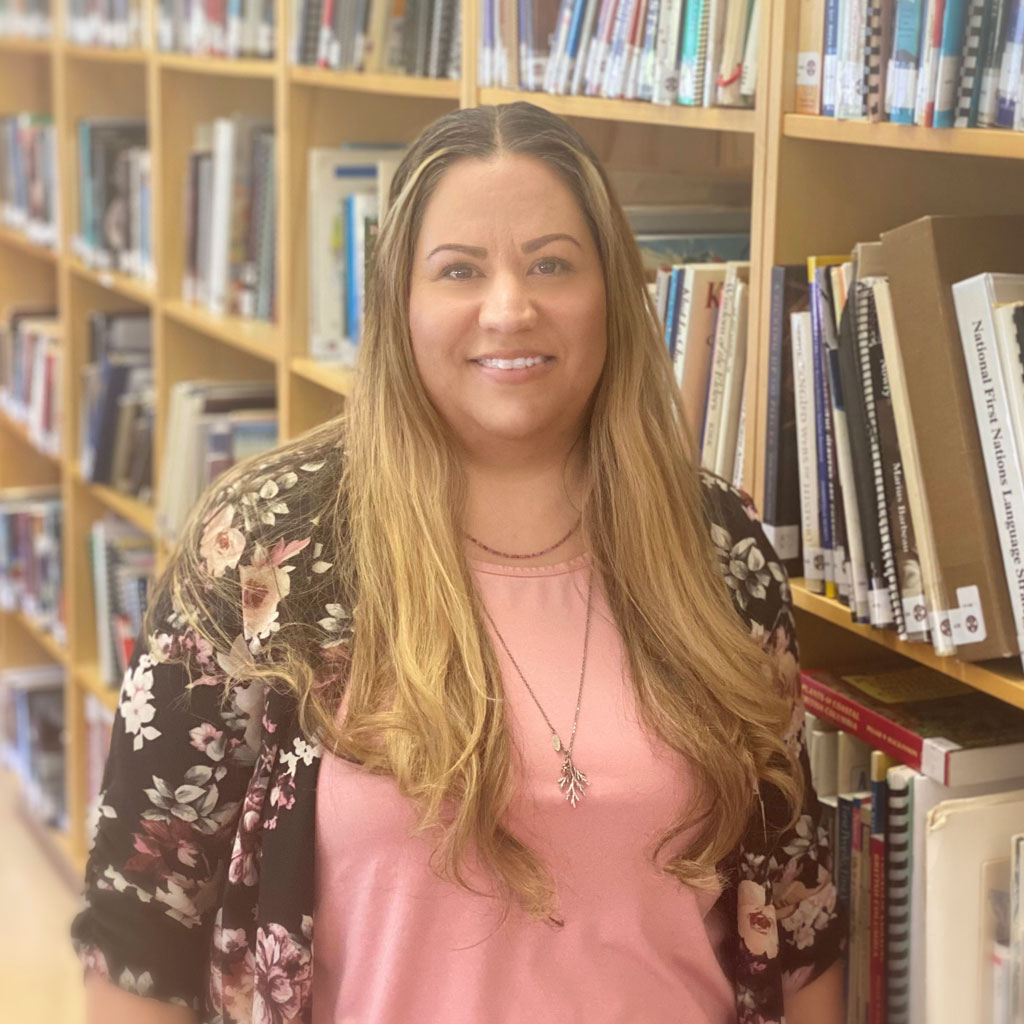For more than 20 years, Lori Burger has been committed to uplifting Indigenous voices in education, in roles spanning from support worker, to teacher, to district staff and administration.

“I am passionate about Indigenous representation both professionally and personally,” said Burger, a Nisga’a and Cree from Treaty 6 Territory in Saskatchewan, who lives in Kxeen (also known as Prince Rupert), British Columbia.
“I care deeply about Indigenous representation and reconciliation learning for all, and am actively involved in evaluating Indigenous literatures and resources for use in the K-12 public school system.”
Burger, who was recently named the valedictorian of the Master of Education program, currently works with the Association of Book Publishers of BC Indigenous Books for Schools and the First Nations Education Steering Committee (FNESC) on authenticating First Peoples resources. She is also co-coordinator for the Networks of Inquiry and Indigenous Education Transitions Inquiry study focused on Indigenous learner success and inquiry.
In past years, she was the Truth and Reconciliation Administrator for her local school district and is currently a Truth and Reconciliation Helping Teacher with the SD52 Indigenous Education Department, as well as a high school vice principal.
“I could not have undertaken this learning without the brave work of survivors like my Grandma and her siblings and parents, who resisted attempts to erase our families through the residential school system,” she said.
“I am forever grateful for the support and encouragement of my family in strengthening my voice, and helping me in learn back my language and culture. Each step of the path I am on was paved by the past and ongoing work of powerful women like my mother, mentors, and aunties that I have been blessed to have as teachers every step of the way.”
Burger recently sat down to reflect on her time at Yorkville University and her plans for the future. Here’s what she had to say:
1. What brought you to Yorkville University? Where were you in your life/career when you decided to continue your studies with us?
What brought me to Yorkville University was my interest in finding ways to further Truth and Reconciliation through leadership. I had just applied to be the first Truth and Reconciliation Administrator in our district and wanted to make sure that reconciliation would be embedded in each area of my work, whether in the classroom or in leadership. Yorkville had the type of program that was a good fit for me at the time as someone in a multifaceted and challenging role.
2. What made you decide to pursue your studies in Educational Leadership?
What made me pursue my Master of Education in Educational Leadership is my passion for Indigenous representation in all areas of education. For far too long, Indigenous representation has been confined to very specific roles. Never having found myself reflected in my own experiences of the K-12 and post-secondary systems as a learner, representation is very important to me. Indigenous representation in all areas of education is an important goal for me, for my children and the staff and students I serve. Attaining a master’s degree in education opens doors to Indigenous representation in areas where I hope that my knowledge and perspectives can make a difference.
3. What is the most important thing you’re taking away from your studies at Yorkville University?
One of the most important things I have learned from this program is that to understand diverse perspectives, it is imperative to first understand yourself. The reflexive learning that I took part in allowed me to both expand my understandings, as well as forms of self-expression. In my Major Academic Report: Truth and Reconciliation in Education, I found a way to move through the learning was to express myself through poetry. This form of expression helped me to process the emotional and academic aspects of Truth and Reconciliation and sparked an interest in moving even further in the practice of writing poetry. As an Indigenous scholar, Truth and Reconciliation is both a professional and personal endeavour and having poetry as a form of healing was an important part of the learning process.
4. What are your plans after graduation, both immediate and long term?
My plans since completing my Master of Education degree have been to explore different forms of leadership in different roles to build my strengths, while embedding Truth and Reconciliation throughout. I was previously a Truth and Reconciliation Administrator and am now a Vice Principal of our local high school. My goal is to bring Indigenous representation in media, literature, and our school communities to the forefront in any role that I am a part of. I also hope to pursue Indigenous specific leadership roles to stay connected to furthering the goals of Indigenous education for all.
5. If you offered one piece of advice to an incoming student, what would that be?
If I were to offer one piece of advice to prospective students, it would be that learning is powerful, but learning about and challenging yourself, your beliefs, perspectives, and biases is transformative. Throughout this process, truly engage in the work to make each aspect of learning personal to you and it will be learning that you can build on to deepen your practice for years to come.






